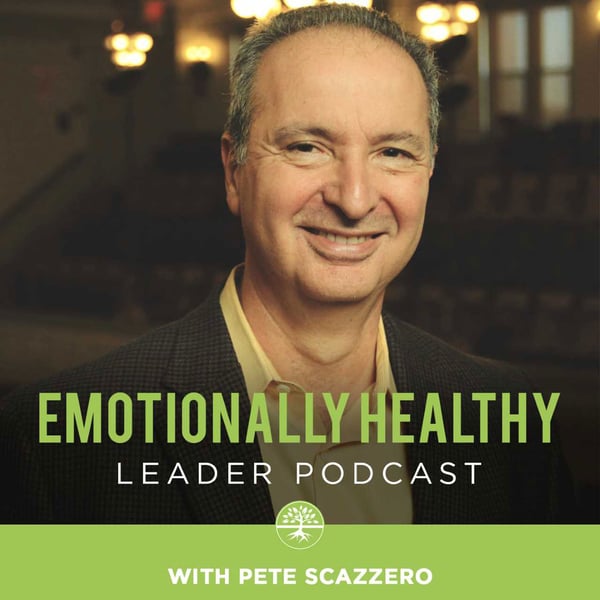Leadership Blindspots & Whitewashed Walls
The Emotionally Healthy Leader Podcast
Emotionally Healthy Spirituality
4.8 • 673 Ratings
🗓️ 31 May 2022
⏱️ 47 minutes
🧾️ Download transcript
Summary
Is your life and leadership the same on the INSIDE as it is on the OUTSIDE?
You might respond "Of course it is!". But reality is - sometimes it's hard to know. That's why God often sends others to help us see our own blindspots.
In today's podcast, I share this full sermon and 3 invitations that I believe are critical for the day in which we live.
Transcript
Click on a timestamp to play from that location
| 0:00.0 | Hi, my name is Pete Scazzaro. I want to welcome you today to the Emotionally Healthy Leader |
| 0:07.1 | podcast. Today I'm going to share with you a message called leadership blind spots and whitewashed |
| 0:14.5 | walls. It comes out of the book of Ezekiel, one of the great prophets in the history of Israel. |
| 0:20.6 | Now, Ezekiel was a priest and the son of a priest from Jerusalem, and he lived through the exile of Israel in 586 BC, when the temple was, temple of God was destroyed by Babylon. |
| 0:33.7 | It was an unimaginable event. |
| 0:35.9 | It was unthinkable. |
| 0:55.6 | That Babylon, which was filled with idols and was considered demonic, corrupt, fallen, that they appear victorious and they destroyed and wiped out, raised the temple in Jerusalem where God's presence and power and glory dwelt and God's people appeared totally defeated. Israel was dismembered and it seemed that history, |
| 1:04.1 | Israel's history, God's people's history, was coming to an end. It was an overwhelming event. |
| 1:08.7 | As far as God's people could see at that moment, it looked like |
| 1:12.1 | the world was ending. But Israel was one of God's prophets in that time was living among them. |
| 1:19.3 | And so the people were dislocated and suffering and traumatized and humiliated. Really not that |
| 1:24.7 | different than I think some of God's people expressed today. |
| 1:29.9 | But Ezekiel receives us revelation, clarity, and insight as a prophet. |
| 1:36.2 | And he speaks to his day, of course, at the end of the 6th century, but he also speaks to us today. And he doesn't focus first on the pagan |
| 1:47.7 | nations around him. In our case, it would be he doesn't speak first to the secular events happening |
| 1:52.3 | or the culture, but he speaks to God's people, especially to her leadership. And he cuts through |
| 1:57.2 | the superficiality of Israel's relationship with God, one that looked good on the |
| 2:01.2 | outside, but inside was not so good, was rotting. He calls her whitewashed walls. And if you remember |
| 2:08.0 | Jesus uses that word whitewashed, referring to the religious leaders of his day, calls them |
| 2:13.5 | whitewashed tombs. That is, they looked beautiful on the outside, but inside, Jesus said, they're full of dead bones. |
| 2:20.1 | So in this penetrating text from Ezekiel 13, God speaks to us today to our own blind spots |
| 2:27.4 | and superficiality. |
... |
Please login to see the full transcript.
Disclaimer: The podcast and artwork embedded on this page are from Emotionally Healthy Spirituality, and are the property of its owner and not affiliated with or endorsed by Tapesearch.
Generated transcripts are the property of Emotionally Healthy Spirituality and are distributed freely under the Fair Use doctrine. Transcripts generated by Tapesearch are not guaranteed to be accurate.
Copyright © Tapesearch 2025.

